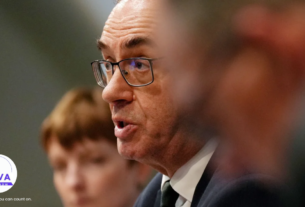The UK government has promised decisive action to ban pornography featuring strangulation, following a major review that raised concerns about extreme content becoming widely accessible online. The review, led by Conservative peer Baroness Bertin, highlighted a troubling trend: depictions of choking during sex are now all too common on mainstream porn platforms and appear to be normalizing dangerous behaviour among young people.
One particularly shocking finding: anecdotal reports showed children as young as ten asking teachers how to choke girls after being influenced by what they had seen online. Medical experts warn that even non-fatal strangulation can cause serious harm. Although choking in sex without consent is already illegal under the Domestic Abuse Act, its presence in pornography isn’t automatically captured under laws governing extreme pornography. The review called for explicit clarity, making it a crime to possess or distribute content depicting non-consensual choking, incest, or degrading violence.
The government has responded by pledging urgent updates to the Obscene Publications Act and plans to empower the regulator Ofcom to police online platforms more like they do traditional media. A government statement acknowledged that graphic strangulation pornography remains accessible despite its illegal nature and committed to closing this loophole quickly.
Experts welcomed the move but warned that the response risks falling short. Professor Fiona Vera‑Gray from London Met argued that the government must “wake up to the fact that pornography is part of the fabric of that violence in our culture now” and warned that unless this is enforced, no amount of education could offset the harm. Baroness Bertin also stressed the distinction: this isn’t about banning consensual adult content, but about cracking down on depictions of violence and abuse that fuel toxic attitudes and real-world aggression.
This policy sits within a wider set of reform ambitions under the Online Safety Act, which already aims to target illegal content and deepfake pornography. But now, the focus is shifting towards closing legal grey areas and addressing how harmful sexual content is shaping societal behaviour.
The government insists it is not seeking to police private behaviour or restrict adult freedom, but rather to prevent extreme violence from being normalized through easily available online content. With many young people using pornography to explore sex, the goal is to protect public health, limit misogyny, and reduce violence by regulating what can be shown and how platforms must act.




